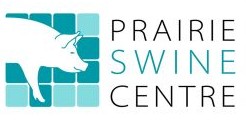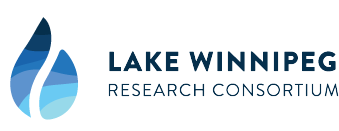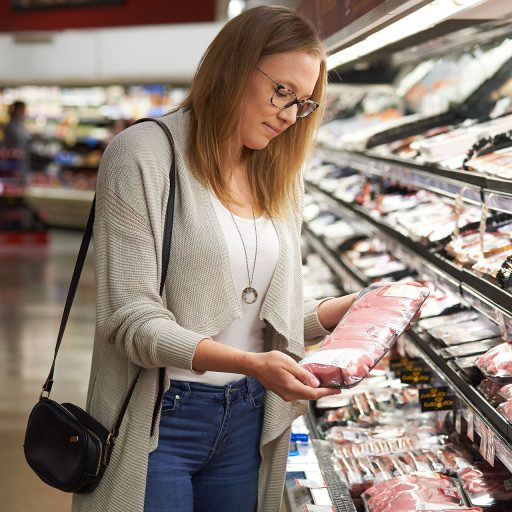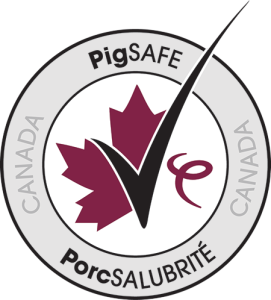- Measure and report on the sector’s economic contribution every 3 years
- Regularly update cost of production studies and construction cost studies
Building a Sustainable Future Together
Manitoba Pork is committed to advancing sustainability across all facets of hog farming and pork production. Our framework focuses on five key pillars that guide our efforts to ensure economic resilience, environmental stewardship, community well-being, animal care, and collaborative growth.
Each of Manitoba Pork’s five sustainability pillars is supported by clear goals and commitments that guide our efforts and communicate progress to producers, stakeholders, and the public. The Framework outlines Manitoba Pork’s role, potential targets, impacts on producers, and areas where collaboration with partners is essential for driving meaningful change.

Economy
& Innovation
Supporting rural and urban communities to thrive.

Commitment #1
Contribute to a thriving, stable, and resilient economy
- Maintain open communication with farmers to ensure a clear understanding of risk exposure
- Amplify collaborations with economic partners in Manitoba (e.g., Manitoba Chamber of Commerce) to communicate activities and results

Commitment #2
Be a leader in research and development for growth in the value of pork production to Manitoba’s economy
- Contribute to third-party, independent research projects
- Maintain contributions to Swine Innovation Porc to ensure continuous knowledge mobilization for the industry
- Maintain contributions to partners including:
Manitoba Pork will also:
Prioritize Research Activities
Supporting the organization’s sustainability vision
Identify Innovations
Supporting Manitoba Pork’s sustainability objectives and promote their wide-scale adoption by farmers*
Explore Partnerships
Partner with external collaborators that can provide on-farm value to pork producers such as Protein MB, lean management experts, trainers of emerging technologies, and others
*This target applies to multiple pillars.
- Perform research extension activities related to Manitoba Pork’s sustainability objectives*
- Use ongoing extension activities to promote research activities and outcomes
- Amplify collaborations with research institutions to communicate activities and results
- Collaborate in the establishment of national research priorities and seek out opportunities for collaborations with other jurisdictions to find synergies and share results
- Continue building on successful collaborations and partnerships within various units of Manitoba Agriculture with the common goal of building and strengthening Manitoba’s hog sector
Environment
Continue to lead the adoption of innovative best management practices to protect our natural environment and respond to climate change.

Commitment #1
Maintain efforts to reduce the greenhouse gas (GHG) emissions of pork production through collaboration and engagement with sector partners and stakeholders
- Contribute data and support to national pork sustainability assessments and initiatives
- Support research that helps producers understand carbon footprints of farms
- Inform producers about the sector’s footprint and provide information on ways through which they can reduce their emissions
- Collaborate with the Canadian Pork Council, other provincial associations, and governments to develop and implement a successful national sustainability journey that acknowledges to Manitoba’s context

Commitment #2
Continue to protect the quality and availability of local water sources
- Contribute data and support to national pork sustainability assessments and initiatives
- Support research that helps producers understand carbon footprints of farms
- Inform producers about the sector’s footprint and provide information on ways through which they can reduce their emissions
- Encourage and support producers to address social, environmental, and economic risks by undertaking voluntary assessments, such as:
Agrishield
Environmental
Farm Plans
Assessment
Frameworks
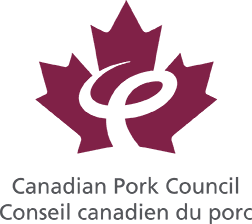
Collaborate with CPC, other provincial associations, and governments to develop and implement a successful national sustainability journey that successfully recognizes Manitoba’s unique local context

Collaborate with Manitoba Agriculture / KAP to promote the adoption of the provincial EFP by hog producers
- Collaborate with NGOs and governments to support initiatives beneficial to soil and water protection.
Associated NGOs
- Connect and collaborate with organizations researching the impacts of climate change on Manitoba’s agriculture sector to leverage results for extension

Commitment #3
Improve soil health by applying sustainable levels of organic fertilizer beneficial for optimal crop production
- Contribute data and support to national pork sustainability assessments and initiatives
- Support research that helps producers understand carbon footprints of farms
- Inform producers about the sector’s footprint and provide information on ways through which they can reduce their emissions
- Encourage and support producers to address social, environmental, and economic risks by undertaking voluntary assessments, such as:
Agrishield
Environmental
Farm Plans
Assessment
Frameworks

Collaborate with CPC, other provincial associations, and governments to develop and implement a successful national sustainability journey that successfully recognizes Manitoba’s unique local context

Collaborate with Manitoba Agriculture / KAP to promote the adoption of the provincial EFP by hog producers
- Collaborate with NGOs and governments to support initiatives beneficial to soil and water protection.
Associated NGOs
- Connect and collaborate with organizations researching the impacts of climate change on Manitoba’s agriculture sector to leverage results for extension
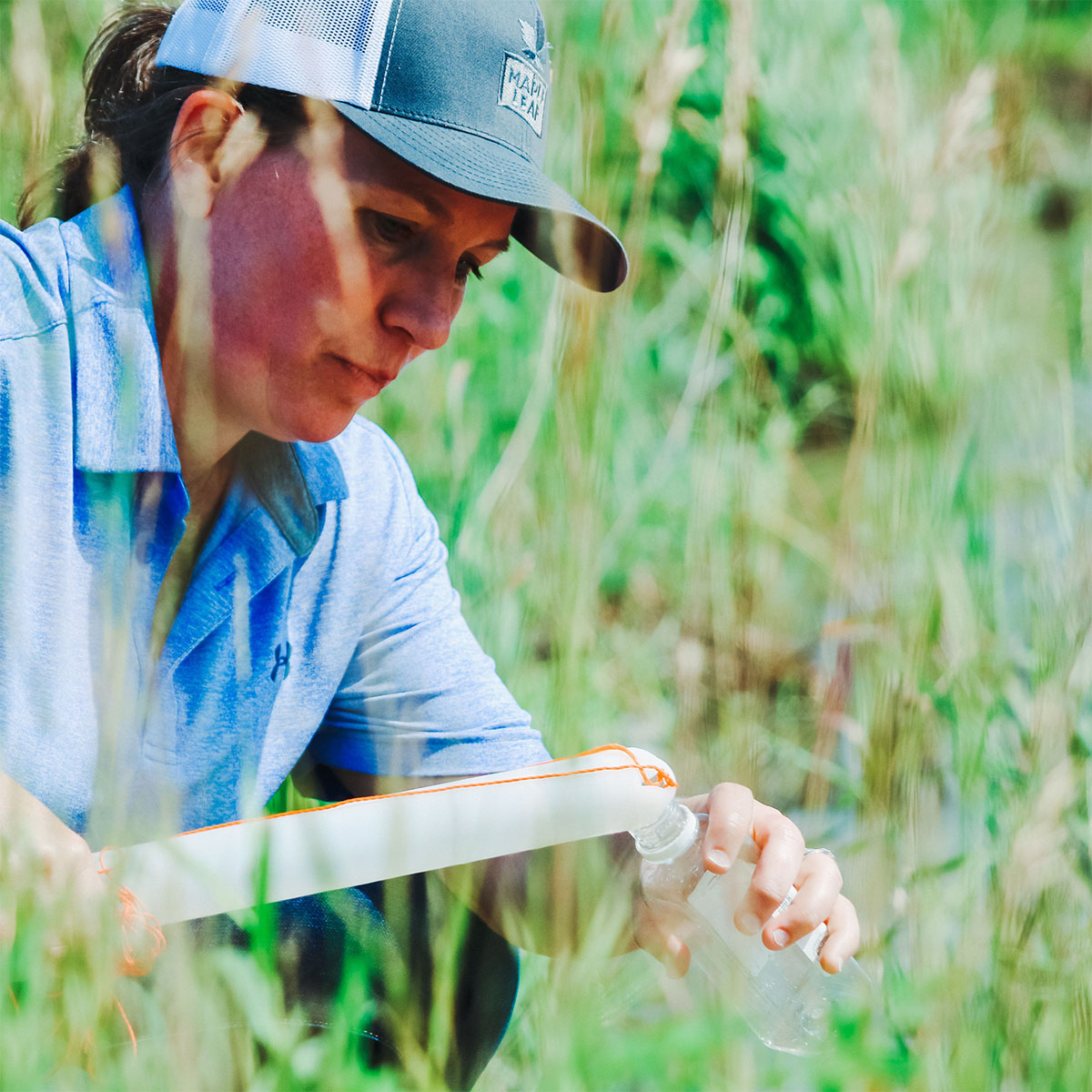
Commitment #4
Proactively build resilience to climate change into hog operations
- Include foresight analysis based on climate change scenarios in key research priorities: (including such topics as innovative building designs, managing heat stress, etc.).
- Inform producers about the consequences of climate change on their operations, and on ways through which they can increase resilience.
- Connect and collaborate with organizations researching the impacts of climate change on Manitoba’s agriculture sector to leverage results for extension.
People
& Culture
Contribute to building thriving communities, safe and fulfilling workplaces, and food security.

Commitment #1
Invest in local communities and community causes
- Prioritize charitable causes that align with Manitoba Pork’s sustainability goals and vision
- Measure and report Manitoba Pork’s total charitable donations on an annual basis
- Provide producers with volunteer opportunities at fairs and community causes
- Actively promote the Pork Proud Ambassador Program with the goal of empowering producers and industry stakeholders to confidently engage with fellow Manitobans to earn trust
- Increase volunteerism year over year from a 2023 baseline
- Donate annually to community causes
- Donate more than 2 tonnes of pork annually to food security programs
- Seek out and develop one new community partnerships annually and continue to evaluate and nurture existing partnerships
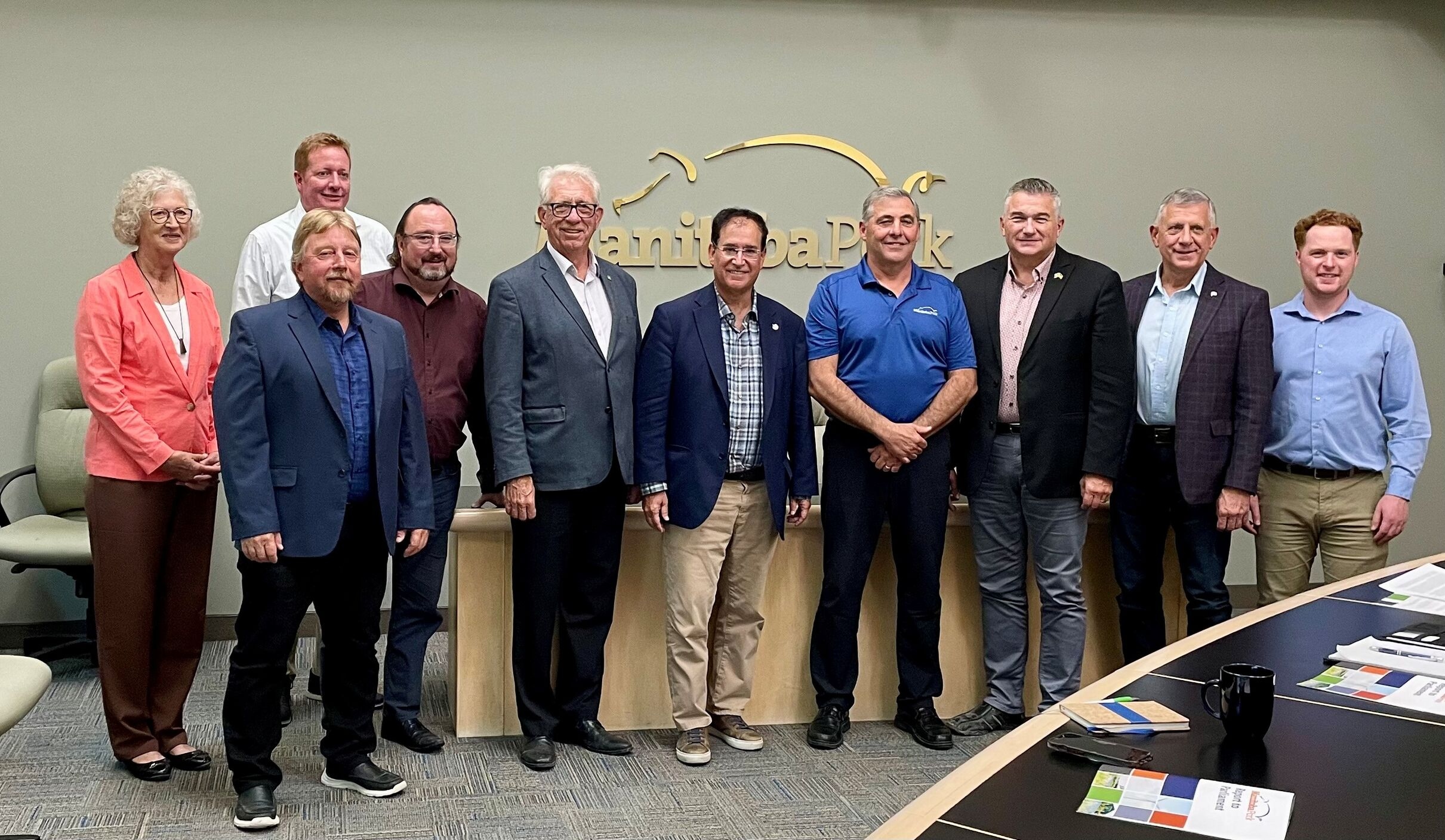
Commitment #2
Maintain active communication and participation with local communities
- Prioritize causes supporting the organization’s sustainability vision
- Measure and report the total value of the sector’s donations (incl. in-kind)
Continue collaborations with the Association of Manitoba Municipalities on initiatives that benefit both municipalities and producers

Commitment #4
Continuously invest into building and/or enhancing inclusive and welcoming communities; safe, respectful and desirable workplaces; training opportunities that increase capacity; and support for the mental health of producers and workers
- Distribute periodic technical communications related to workplace safety improvement
- Complete annual worker/producer self reported well-being analyses
- To acknowledge its evolving demographics, support and promote:
Diversity
Equity
Inclusion
- Train producers on labour management
- Provide producers with access to farm safety resources
- Collaborate with the Canadian Agricultural Human Resources Council and other groups to develop communication and training material for producers
Animal Care
& Food Safety
Continue to prioritize well-being and strict biosecurity in the rearing of pigs to ensure humane production and safe, high-quality protein.

Commitment #1
Lead the adoption of new management and biosecurity practices and equipment in keeping with the Code of Practice for the Care and Handling of Pigs, and continue to comply with transportation standards
- Follow-up with remediation measures when animal health issues are reported by requiring that corrective actions be undertaken under the Canadian Pork Excellence (CPE) program
- Provide validation and training under the CPE programs, including on-farm audits
- Offer development and training opportunities regarding animal transport standards
- Support small-scale producers with dedicated resources to help them with respect to national programs
- Decrease annual non-compliance with related animal care programs
- Develop extension material and train producers to ensure a clear understanding of what is meant by “fit for transport” within the Canadian regulatory context
- Collaborate with the chief veterinary office to deal with and follow up on complaints related to inhumane treatment
- Collaborate with CPC to develop programs and extension material on national programs
- Collaborate with the Prairie Swine Centre to develop resources for producers and small holders in particular
- Collaborate with the provincial government on initiatives targeting small holders
- Collaborate with CFIA and other key sector stakeholders on animal care and food safety initiatives
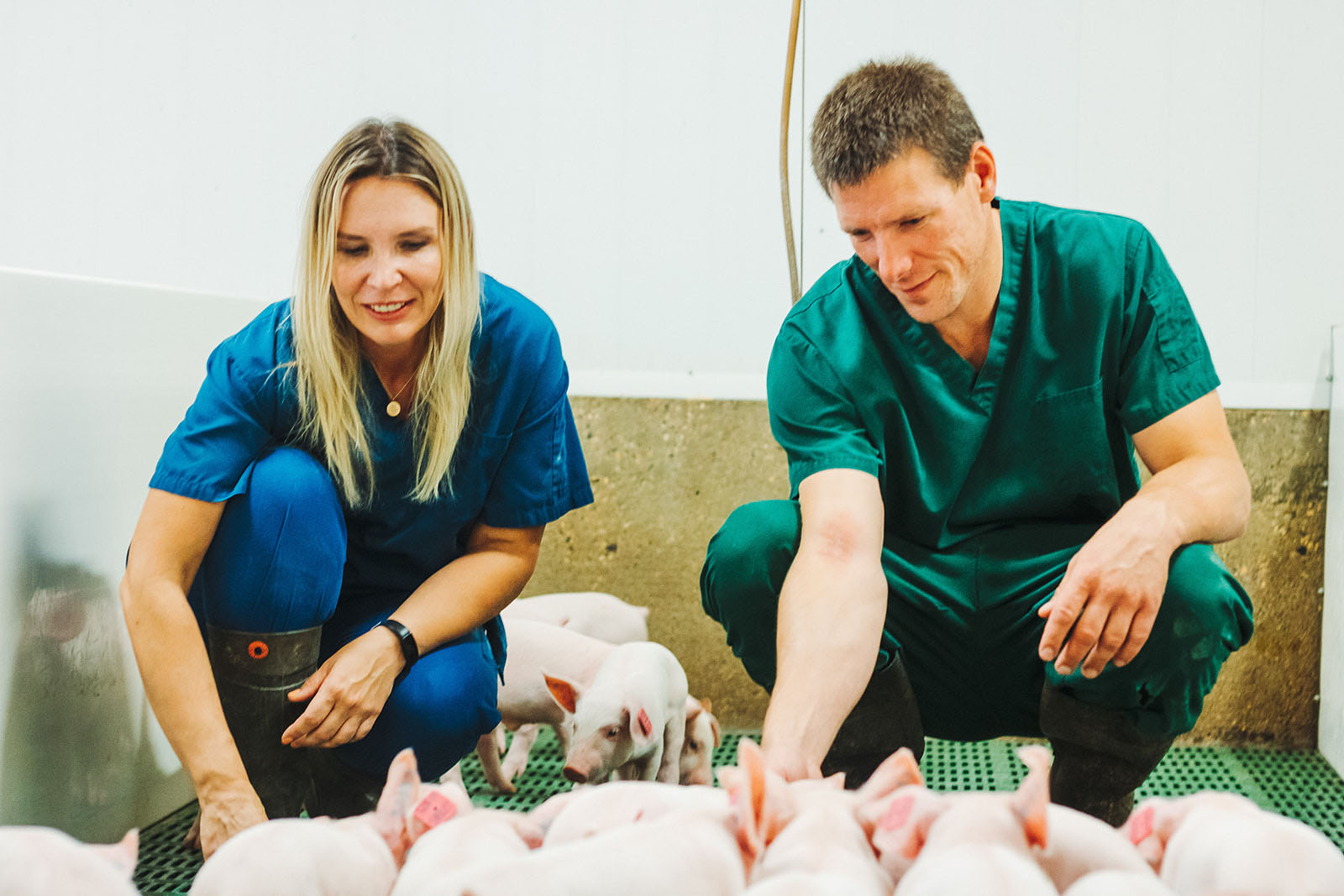
Commitment #2
Work with stakeholders and experts to ensure awareness of research, development, and guidance regarding antimicrobial use and resistance
- Undertake research and consultation with stakeholders and experts regarding the latest guidance on antimicrobial use and resistance.
- Provide educational materials and other knowledge transfer activities for producers regarding antimicrobial use and resistance.
- Collaborate with CPC, the research community, and governments to identify implementation measures for the most recent guidance on antimicrobial use and resistance.
Sector
Engagement
Build partnerships toward a sustainable future for the pork sector.
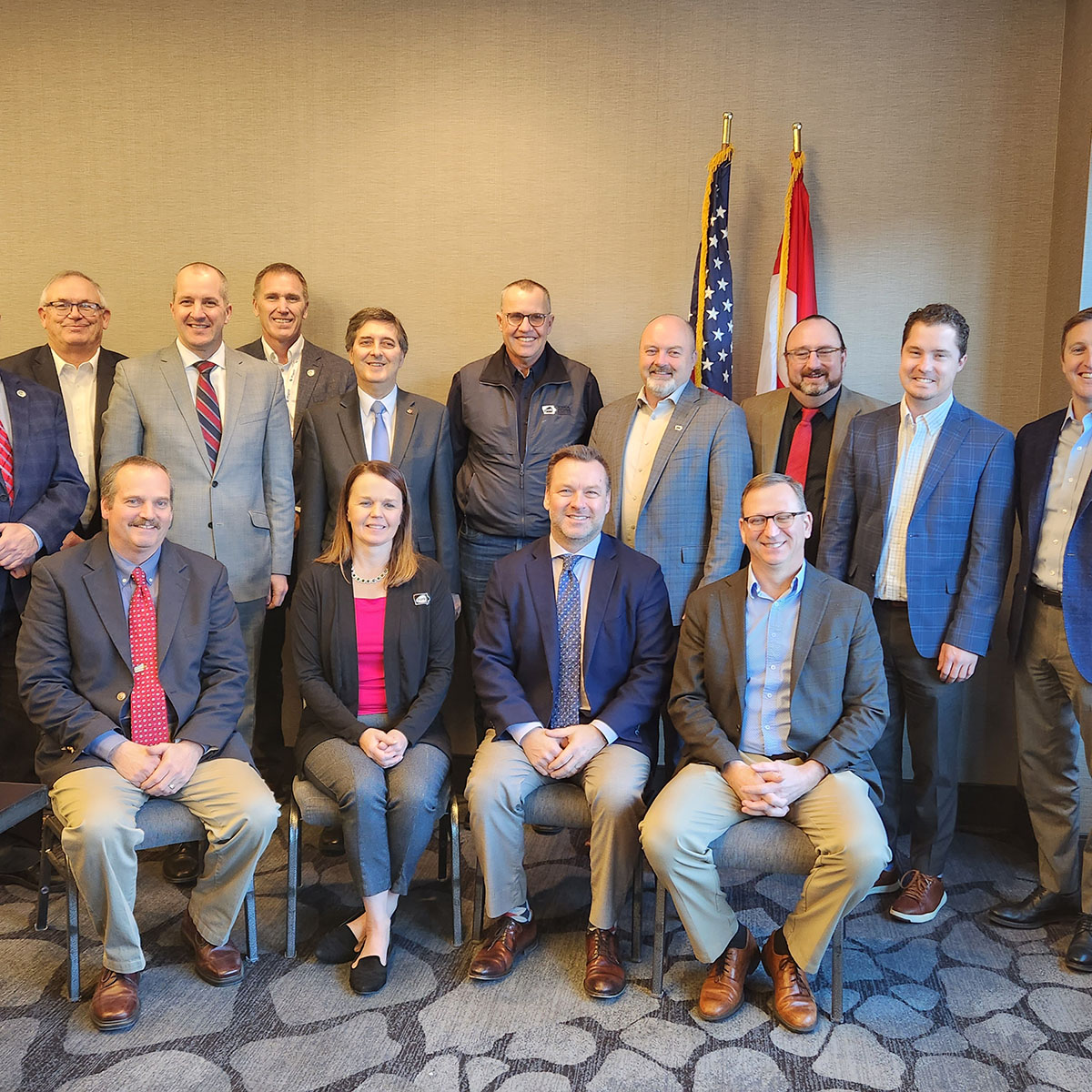
Commitment #1
Build the competitiveness and reputation of Manitoba’s pork sector by participating in pork sector initiatives and events in Canada and key export markets
Bring forward the organization’s sustainability vision in all of Manitoba Pork’s representation activities.
Continue to foster relationships with sector representatives and producer organizations in American states that have strong trade partnerships with Manitoba.



Commitment #2
Participate in producer peer groups to facilitate collaboration, knowledgesharing, and collective approaches to key issues
Create and lead a multistakeholder committee comprised of producers, sector partners, and government representatives to identify and address shared priorities.
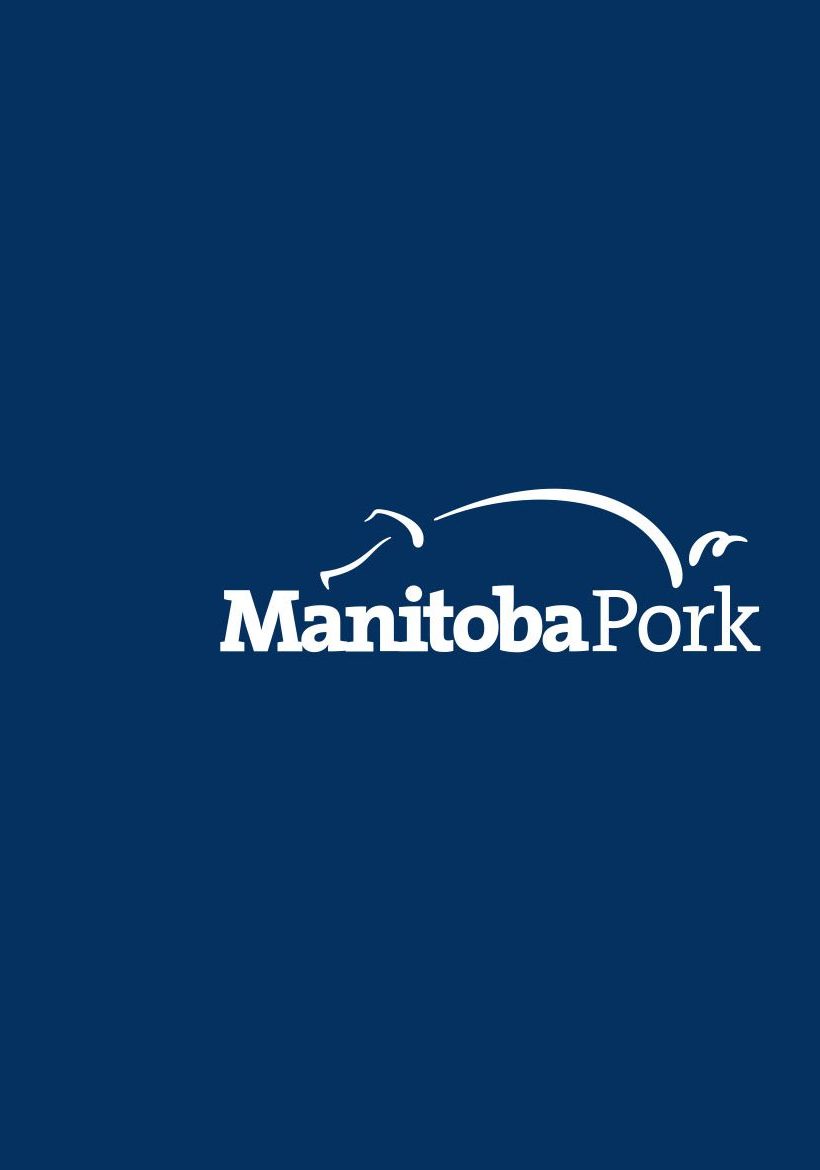
Commitment #3
Through Manitoba Pork, enhance transparency by regularly reporting on efforts and progress toward key objectives
Create a ‘Sustainability’ section in the annual report to disclose factual and balanced information on the sector’s performance

